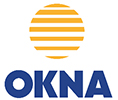In researching your replacement window purchase, you have probably found yourself focused on choosing the right product that fits your needs at a fair price. Great job, you are on the right track, however this is just a start. Unfortunately, a great window installed poorly will perform poorly. In addition, a great replacement window and installation by an unstable company can result in failure to serve your needs down the road should issues arise. It is very critical to choose a company that utilizes the latest and greatest replacement window installation methods and materials, and from a company that is reputable and stable. In participating in other blogs and forums, I see the vast majority of emphasis placed on the product throughout the decision making process, but don’t forget the importance of installing that properly, and also of dealing with a trustworthy and reputable company.
Items to look for:
Replacement window installation methods:
- Does the company offer multiple installation methods? A one size fits all approach tells you that they do not have the needs of their clients at the top of their list. Pocket replacement, full frame tear-outs, with or without nail fin, etc. are all replacement window installation methods to be considered
- Does this company utilize a low expansion, closed cell foam to insulate around the new windows? This process is more expensive than obsolete methods such as stuffing of fiberglass, or solely relying on a factory installed perimeter foam wrap, both of which are potential sources for air leakage.
- Does this company use high quality ancillary items including a premium caulk like OSI Quad?
- Does this company attempt to retain the architectural detail of your exterior trim, or do they cover with simple flat metal bends?
Replacement window installation company:
- BBB record A+ with minimal complaints
- Angie’s List positive reviews
- A physical location with office and showroom. This is very important, as fly by night contractors won’t answer their phone after the installation
- Membership in trade organizations such as NARI, NAHB, MBA, etc.
- Manufacturer certifications
- Reasonable company history, as most companies go out of business in the first five years
Subscribe to HomeSealed Exteriors's Blog







Comments